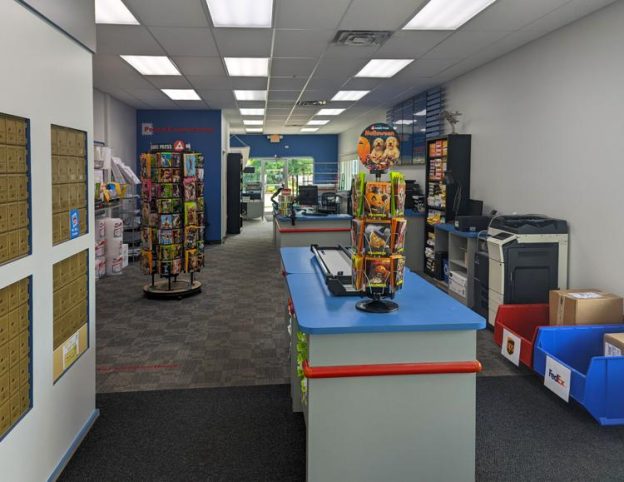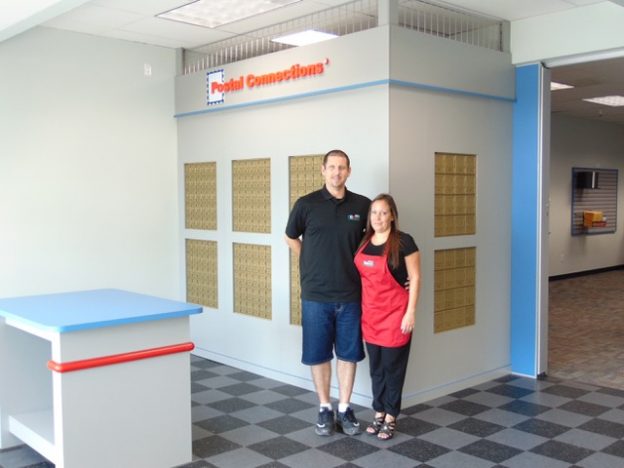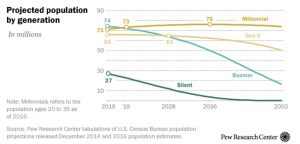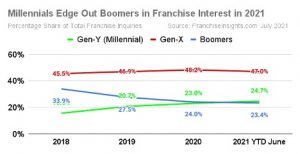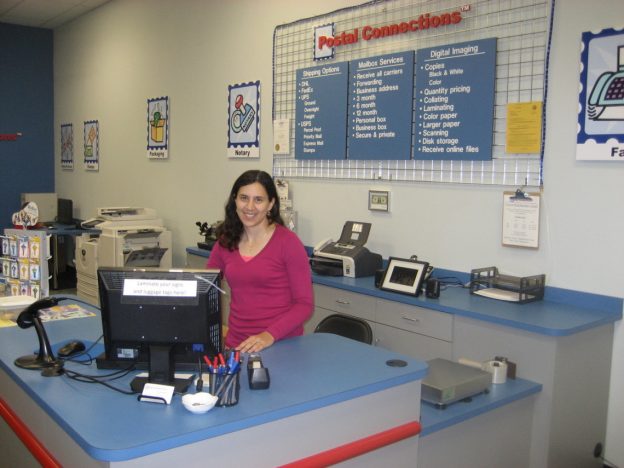As published in the October issue of Global Franchise Magazine.
We live in interesting times, which a Chinese proverb tells us this is a curse. In franchising it can be a blessing to those franchise models that see flexibility and a focused view on customers.
Artificial intelligence is powering business automation; and digital technologies are transforming clunky analog processes at a rapid pace into self-help time and cost efficiencies. Franchise industry adoption of new age operating processes is in full swing, so there is no slowing down the future.
As a consequence of the pandemic and continually changing consumer behavior, what we once thought of as normal business practices just a few years ago will never be the same. Your franchise business could be in peril if you utilize stagnant “old-school thinking,” ignoring the modernized preferences of today’s customers with special attention on differences among different generations.
Franchises that have remained flexible and nimbly embracing change are being rewarded, often driving record sales and new unit growth. Unique innovations across industries have been implemented to entice today’s consumers in new ways, such as double drive-through lanes to keep fast-food fast. Ecommerce delivery drop-off and pickup packages at pack and ship retail stores adds time-saving convenience and service when needed. Postal Connections® has been following a retail business strategy of blending high tech with high touch service to remain relevant for consumers and local businesses. Paperless and cashless transactions are another technology driver impacting retailing. Recognizing this at Postal Connections, a new consignment sales service using eBay enables customers to turn over the selling of their items online to our staff expertise and iSOLD It® automated system. Using a software system, staff are able to assess item values and sales volatility to advise customers on pricing. Seller identities are transparent online, automated payments are received and franchisees earn a service fee that is directly deposited by eBay into their business account.
In another retail sector, a 2020 study from Wakefield Research found that when faced with change, 85% of restaurants completely reorganized their operations, changing the way they interact with customers as we know it. But, restaurants are not the only ones impacted by modernizations, all of franchising has been impacted. Thus, here are three things to keep in mind as you consider your evolutionary plans for the new normal.
Embracing New Technologies
Technology innovations are the driving forces of our modern society. A whopping 95% of Americans own a cellphone of some kind, with over 85% of those being smartphones. This means that a great minority of the American population does not own a smartphone. One aspect at the intersection of technology and businesses coming together that has taken off is mobile applications. In 2018, 42% of small businesses already had a mobile app, and this has only increased in the last three years. Now, businesses can be an earworm in our phones and with consumers carrying a piece of them everywhere we go.
With increased technology, the way we think about currency has changed. Years ago, the concept of “cashless” businesses was unheard of, and now, especially in big cities, they are a normal occurrence. What started as the takeover of credit and debit transactions, is now the takeover of mobile payment options such as Apple Pay, or even unconventional payment methods like Bitcoin. With the click of a button, you can pay for your items without picking up a single penny. Though not all businesses will or even should go cashless, providing sufficient currency options for customer payment is essential in the modern era.
Home delivery options within businesses were proven to be saving graces throughout the pandemic and continue to remain a staple. E-commerce has simply soared to unimaginable heights due to what began as stay-at-home orders and turned into time and convenience efficiencies for society at large. Postal Connections has seen a surge in our pack and ship services from this transformation (systemwide revenues were up nearly 10 percent in 2020 over 2019. Currently franchise locations are nearly 15 percent up in 2021 over 2020), and we’ve embraced by reinvesting in our own technologies to reinforce the uptick in delivery preferences for consumers and businesses.
Whether it is taking the form of delivering food from a local restaurant through third-party mobile applications, or e-commerce orders for whole new wardrobes through extensive online shopping options, the ease of not having to leave your home matched the needs of modern consumers in a post-pandemic world. For instance, we have adjusted to at-home convenience with our proprietary iSOLD It on eBay operating system. It works on mobile devices so Postal Connections staff can go to a seller-customer’s home or business to start our service. Robust e-retailing options are one of the most transformative aspects of new normal operating processes, though concerns remain with supply chain issues.
Labor Light
According to a 2019 study from Oxford Economics, Robots could take over 20 million jobs by 2030. Where factory workers once sat, and secretaries once made phone calls, there could be an individual computer controlling all of the work. Labor supply for many franchise sectors is as small as ever, and businesses are looking for ways to operate “labor-light” business models, requiring as few bodies as possible.
We have all heard complaints that robots are growing so complex that they have the ability to take over our jobs. Though this sentiment is often laughed off, it is a genuine reality and concern. But, given current labor shortages, there may be no other answer. The more automation built into business models today, the greater the likelihood of operating a business designed for today and beyond.
Likewise, the simplicity in business models needs to be optimized – the lower the employee count, the greater the attractiveness of the franchise for franchisee recruitment. Today, blending high tech with high touch services fosters personalized attention with as little as just a few employees. The combination of human interaction and tech forward innovation becomes a powerful benefit for many who want to save time, don’t want to do it themselves or seek expertise and comforting attention. Especially among service business franchises, the human element is key to customer loyalty and earning a margin for being there.
One aspect that many businesses have adopted is the concept of “self-service.” This takes the form of self-checkout at a grocery store or an ordering kiosk at a restaurant.
Another dying concept is that of picking up the phone. 88% of Millennials prefer texting over phone calls, and the same can be said for Gen-Z. Picking up the phone and engaging in a time-consuming conversation that could have been a simple text feels like a waste of energy for these groups. Nowadays, to accommodate these young individuals, there should always be an online option. Being able to make a haircut appointment on an app at the click of a button versus having to spend time speaking to another human is a sigh of relief. Scheduling and booking appointments, tickets and more online takes franchise industries is a huge step in the right direction.
When we look at customer satisfaction, consumers tend to be happiest when the task requires the least time and brainpower. The “labor light” model with fewer employees, do it yourself options, and single-click versus phone call options make the world run smoother, especially among younger generations who are the most savvy technology users.
Supply Chain
Right now it is hard to get many things. We are consistently hearing about shortages within the narrow supply chain crowded with back orders. Supply shortages are up 638% in the first half of 2021. It is vital that businesses dependent on hard and soft goods, foods and delivery of operating supplies remain up to date and prepared to tackle these challenges.
The modern business will make adjustments to accommodate services and offerings depending on product availability and delays, without compromising quality and reliability. One example of this recently were the U.S. meat shortages. Supply chain issues are to blame. These shortages have led to shifts in consumer behavior, and leave consumers looking for alternatives. Other shortages include car-chip shortages, impacting the number of new cars produced, home furnishings and less essential items such as pool equipment.
In the very near future, drones may very well be dropping our stuff off, and we may leave our own homes less. People are continuing to work from home (with roughly 22 million Americans still in “WFH” mode), shop from home and do things without any human interaction. This is new behavior, and a big change from old fashion ways, but adaptation to new supply chain requirements is imperative. We are gripping onto any human interaction we can get, though now we are launching into a new normal filled with endless possibilities and personal capabilities using technology. Agile and flexible franchise concepts will flourish as they recognize that younger people from a new generation coming into consuming and commercial leadership have the right to do things the way they want.
Fred Morache is the COO and Managing Partner of Postal Connections/iSOLD It, bringing more than 25 years of experience in the franchising and pack and ship industries to his leadership role.

